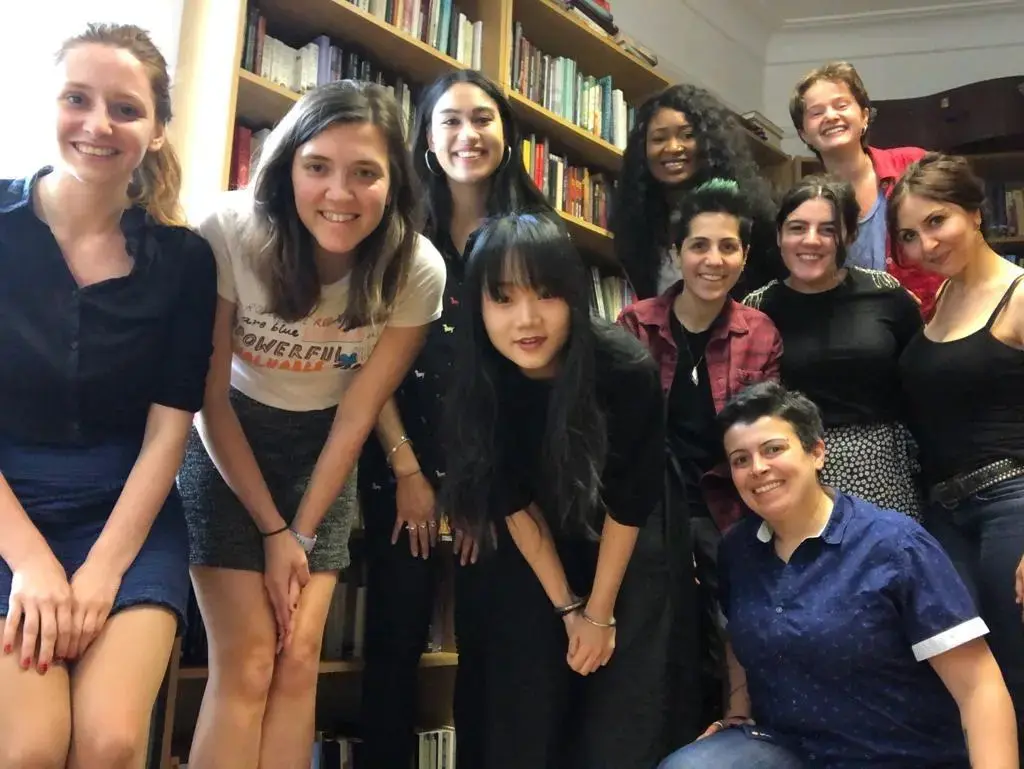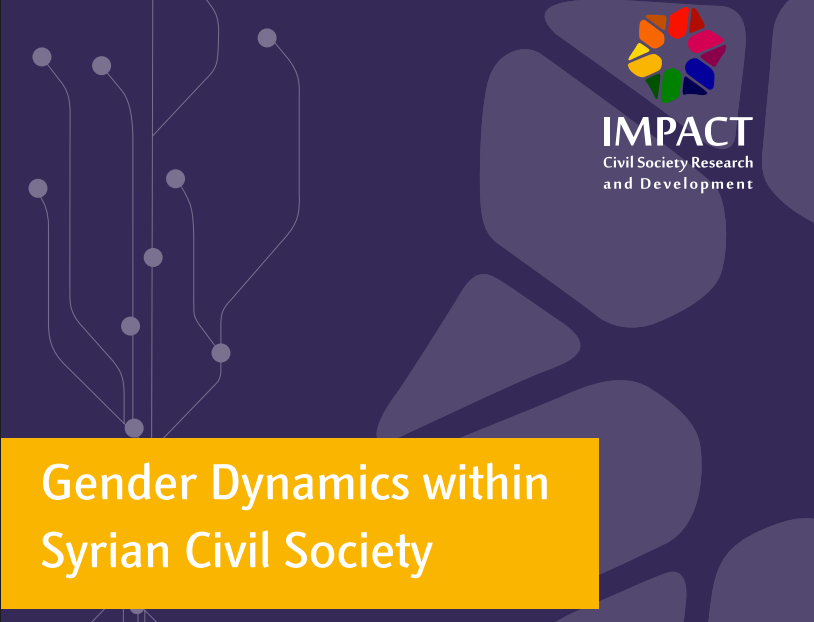Gender Dynamics within Syrian Civil Society
IMPACT & CTDC | February 2019
This report presents the findings of a gender-sensitivity assessment of Syrian civil society organisations (CSOs) conducted across Syria, Turkey, Lebanon, and Jordan. Developed by IMPACT in collaboration with CTDC, the research investigates internal and external factors affecting women’s involvement in CSOs, drawing on interviews, focus groups, ethnographic observations, and a Gender-Sensitivity Assessment Tool (G-SAT).
🔍 Key Internal Challenges
- Lack of Gender Awareness: Many CSOs misunderstand the concept of gender, often reducing it to women’s participation. Gender equality is viewed as a donor requirement rather than an internal priority.
- Absence of Internal Policies: Most organisations lack formal policies addressing harassment, bullying, or inclusion. Even where policies exist, they are often unknown or not implemented.
- Organisational Immaturity: CSOs, formed in response to crisis, struggle to prioritise governance, including gender inclusion. Short-term donor-driven models limit long-term institutional development.
- Economic Barriers: Women face indirect discrimination through a lack of maternity leave, childcare, or flexible working arrangements. Financial roles are often male-dominated, perpetuating gendered division of labour.
- Reproduction of Gender Hierarchies: Women are underrepresented in leadership roles unless in women-focused organisations. Many projects reinforce stereotypes (e.g., tailoring or beauty training) rather than empowering women’s broader participation.
🌍 Key External Barriers
- Restrictive Funding Ecosystem: Despite rhetoric, only 0.5% of international funding targets women’s needs. Women-led organisations are underfunded, and gender work is often co-opted by male-led CSOs.
- Lack of Context-Specific Interventions: Donor programmes often impose Western frameworks (e.g., CEDAW, UNSCR 1325) with little regard for local realities. This silences local feminist voices and sidelines intersectional approaches.
- Insecure Operating Environments: CSOs in more stable regions (e.g., Turkey, regime-controlled Syria) are more likely to implement gender-sensitive policies. In unstable areas, immediate survival often overrides gender equity considerations.
- Cultural and Social Norms: Social restrictions—especially in refugee-hosting countries—limit women’s mobility and public engagement. In some cases, grassroots women challenge these norms through informal support networks and quiet resistance.
🛠 Key Recommendations
For Syrian CSOs:
- Institutionalise gender training and feminist governance practices.
- Create and implement safeguarding and anti-harassment policies.
- Promote women’s leadership and gender-sensitive budgeting.
- Secure operational funding to support inclusive organisational development.
For International Stakeholders:
- Fund women-led and feminist organisations directly.
- Avoid imposing foreign frameworks; support Arabic-language, context-specific approaches.
- Adopt feminist governance in donor practices.
- Enable locally informed strategies and flexible programming based on lived realities.
👉 To read the full research report, click below 👇
Reach to Us
Have questions or want to collaborate? We'd love to hear from you.




